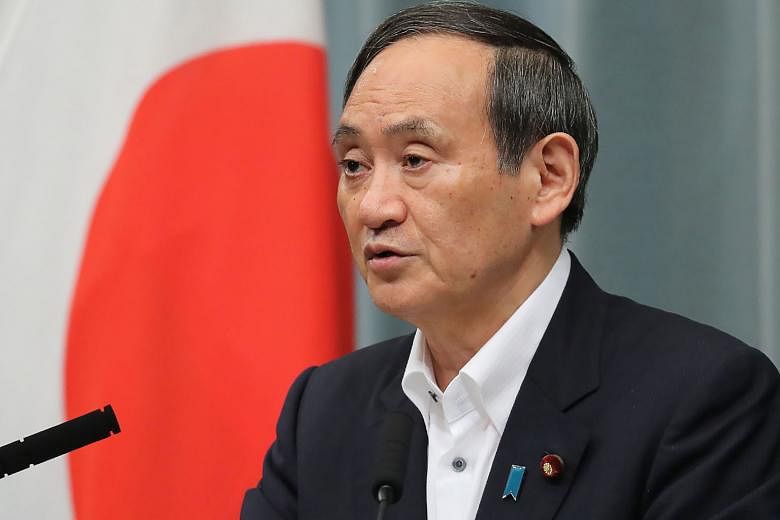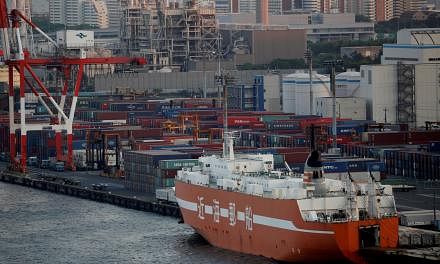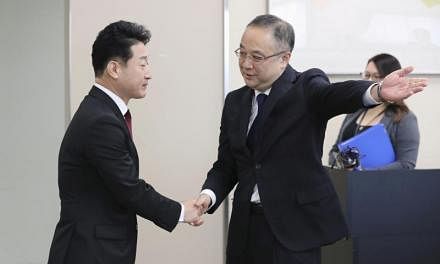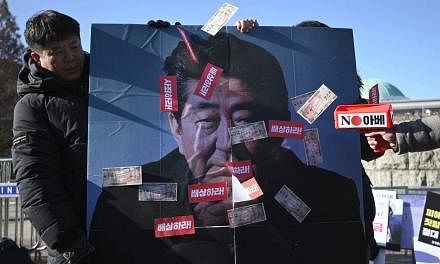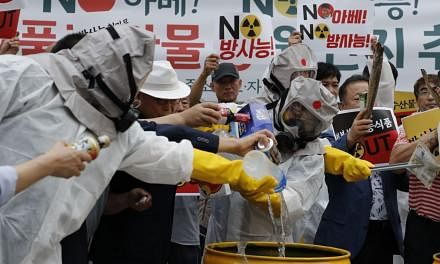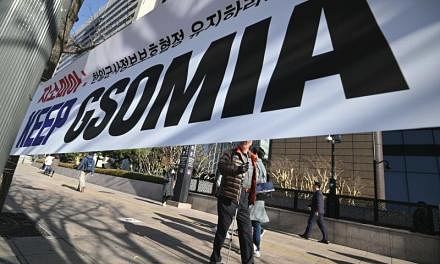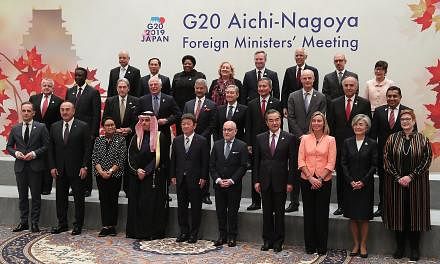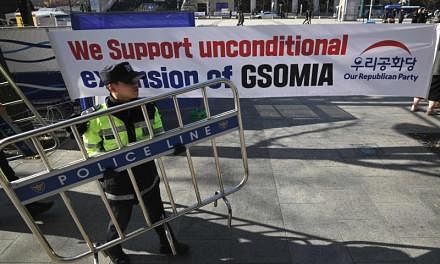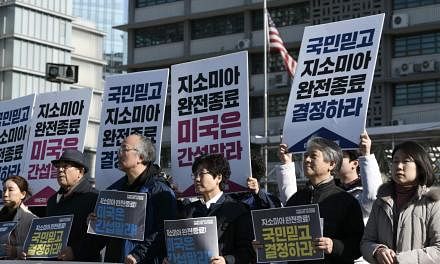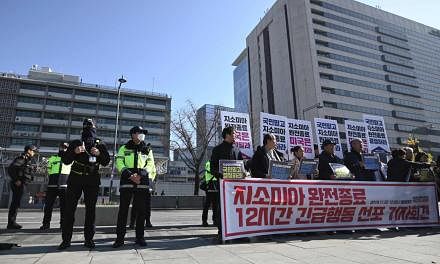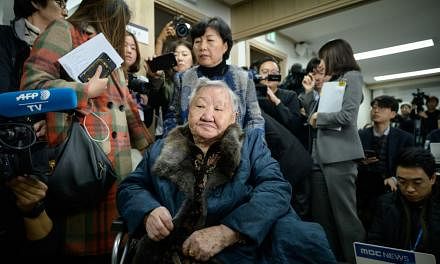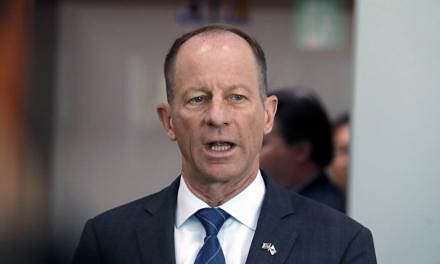Hundreds of Japanese firms will be labelled as "war crime companies" in South Korea's two largest cities - Seoul and Busan - which yesterday adopted laws to condemn the alleged use of forced labour or production of military equipment during Japan's occupation of the Korean peninsula.
The local ordinances could affect as many as 284 Japanese companies in a widening boycott, as mayors and other city officials in the two cities are asked not to buy Japanese products.
This represents a marked escalation of the ongoing anti-Japan boycott drive in the country, which was sparked by Tokyo's move to strike Seoul off its white list of trusted trade destinations because of what was deemed as lax export controls over sensitive material.
The boycott campaign has, until now, been a grassroots movement, but yesterday's ordinances by the two cities - which together account for a quarter of South Korea's population - are the first to be green-lit by democratically elected officials.
Japanese media yesterday noted that similar Bills have been proposed at other city councils, but these have thus far been rejected over concerns that they may further inflame already volatile ties.
A Seoul city official was cited by South Korea's Yonhap News as saying that he "agrees with the legislative purpose of the ordinance and respects the city council's decision".
Chief Cabinet Secretary Yoshihide Suga yesterday told a regular news conference: "It is extremely regrettable that certain Japanese companies are now being unreasonably condemned over improper and unreasonable claims, and may be inflicted with economic damages."
Japanese companies are already counting their losses.
South Korean imports of Japanese beer nosedived 97 per cent last month as compared with August last year, while Japanese carmakers reported a 57 per cent plunge in sales last month.
Uniqlo said its sales in South Korea fell 40 per cent in July.
The Financial Times, citing unnamed sources in a report yesterday, said Nissan Motor is mulling a withdrawal from South Korea.
Japan insists its removal of South Korea from the trade white list was over security concerns, but Seoul does not buy this explanation.
Instead, it sees the move as an arbitrary and punitive one, following a spat over wartime labour that erupted after a series of Supreme Court rulings ordered Japanese firms to compensate the victims.
Japan says that all compensation has been paid out under a 1965 treaty to normalise bilateral ties, but South Korea argues this pact does not preclude individuals from making their own claims.
South Korea has retaliated with a plan to strike Japan off its own fast-track trade white list in a move that will likely take effect this month after a public consultation.
Seoul last month also gave notice that it wants out of a bilateral military intelligence-sharing pact, which will expire in November.
However, Prime Minister Lee Nak-yeon has said Seoul will not pull out of the pact, known as the General Security of Military Information Agreement, if Tokyo retracts its removal of South Korea from the white list.
But Kyodo News yesterday cited Japanese government sources as being dismissive of this overture.
An unnamed official was quoted as saying: "We cannot condone negotiations to barter trade controls with security cooperation. They're completely different issues."
Meanwhile, in another ordinance that is set to widen the bilateral rift, the Busan City Council yesterday approved the erection of statues on its streets to commemorate history.
This could include statues of forced labour victims.
Council member Kim Min-jeong said this was such that "we don't forget our miserable past".
• Additional reporting by Chang May Choon in Seoul
